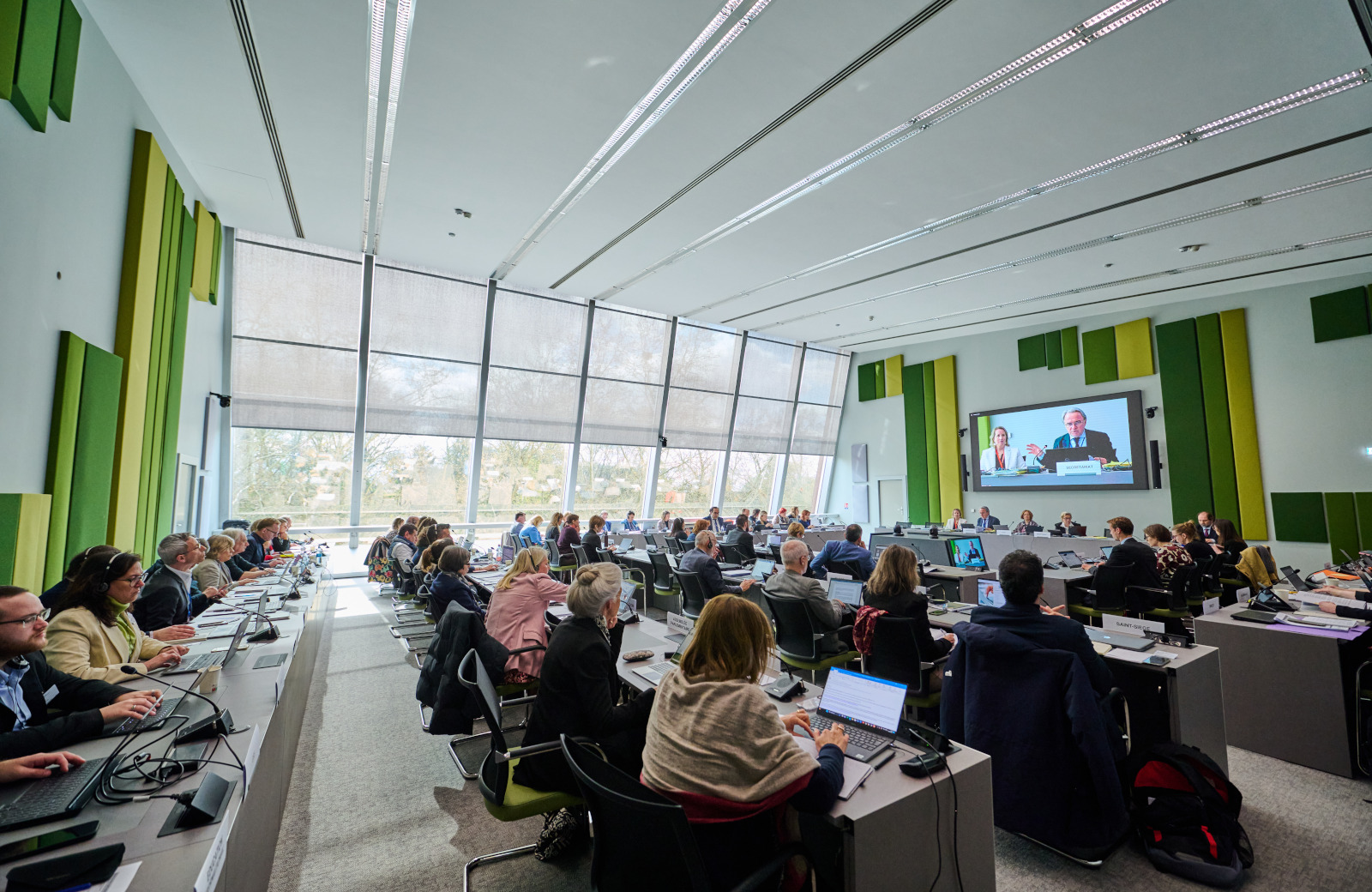About us

Higher education plays a crucial role in developing the democratic culture without which democratic institutions and laws will not function in practice. In respect of academic freedom and institutional autonomy, democratic institutions should also play a key role in assessing and rethinking how our democracies should evolve over the coming generation to ensure a commitment to European values and the active participation of citizens in public space.
 Steering Committee for Education (CDEDU)
Steering Committee for Education (CDEDU)
The education department is overseen by the Steering Committee for Educational (CDEDU) and manages projects on:
- Education for Democratic Citizenship/Human Rights Education;
- digital citizenship;
- competences for democratic culture;
- the European Higher Education Area;
- recognition of qualifications;
- history teaching;
- language policy;
- the linguistic integration of adult migrants;
- capacity building;
- ethics, transparency and integrity in education and
- remembrance of the Holocaust and prevention of crimes against humanity
 Ad Hoc group on Higher Education
Ad Hoc group on Higher Education
To ensure a strong link with higher education policy, in 2014 the CDEDU (at the time, CDPPE - Steering Committee for Education Policy and Practice) created an ad hoc group on Higher Education composed of the Chair or Vice Chair of the CDPPE, representatives of public authorities, higher education institutions and international stakeholders organisation like the European Students’ Union; the European University Association and Education International.
The Council of Europe has established a very strong role in higher education policy, based on three main elements:
- A longstanding role in the area of qualifications, in particular in the area of recognition, based on a number of conventions and, since 1997, on the Lisbon Recognition Convention (ETS 165; jointly with UNESCO) as well as on the activities of the ENIC Network[1]. Since 2003, the Council of Europe has also played a key role in the development of the overarching framework of qualifications of the European Higher Education Area;
- A strong role in the development of the European Higher Education Area (Bologna Process), the main framework for higher education policy and reform in Europe, as an active contributor to the Bologna Follow Up group and board, co-chair of the Structural Reforms Working Group and with a particular role in promoting the pan-European dimension of the EHEA. The Lisbon Recognition Convention is the only legally binding text of the EHEA;
- Promoting the democratic mission of higher education, in close cooperation with the US Steering Committee of the International Consortium for Higher Education, Civic Responsibility and Democracy, the European Wergeland Centre and other partners.
The Council of Europe’s strong role in higher education policy is in large part based on the legitimacy lent by the strong previous involvement of policy makers in both public authorities and the academic community. Even if strong higher education representation in the Steering Committee would make it easier to identify such experts, contributions form academic experts are important to many Council of Europe programmes and policy areas. The specific issue at hand here is how to maintain a strong input from academic policy makers, in particular rectors of higher education institutions. The ad hoc group answered to this challenge
[1] The ENIC Network, coordinated by the Council of Europe and UNESCO, was established in 1994 by merger of the previously separate networks of each organization. It cooperates closely with the NARIC Network coordinated by the European Commission. All members of the NARIC Network are also members of the ENIC Network; in addition, the ENIC Network includes all countries of the UNESCO Europe Region and/or party to the Lisbon Recognition Convention.)




